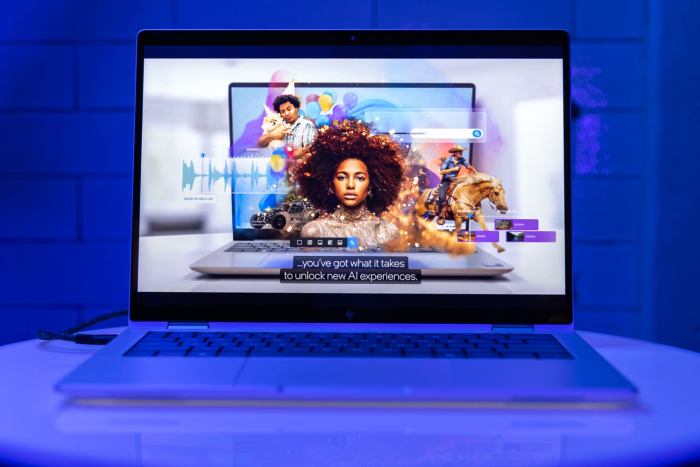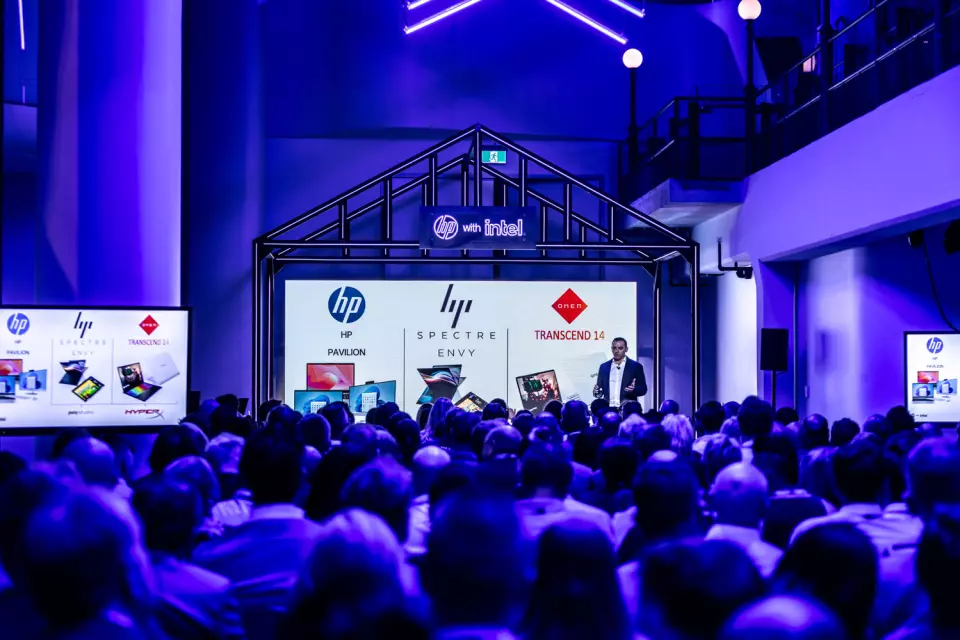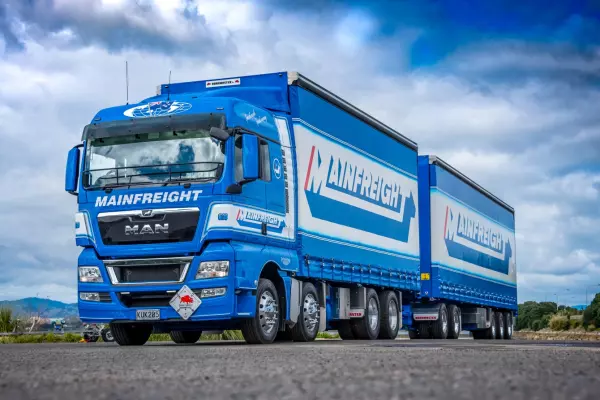New PCs promote AI's fast productivity payoff.
HP has launched a wide-ranging portfolio of business and consumer AI PCs, powered by Intel, that can power through demanding artificial intelligence tasks without using increasingly expensive cloud services.
The recently introduced models include laptops from HP’s Elite, Pro PC, ZBook and Pavilion ranges. They cover every user need from casual home computing and gaming through to advanced creative work and complex business analysis.
HP says its HP Elite 1040 Series Notebook PCs are the world’s most powerful business AI PCs while the Pavilion models are an affordable entry point for everyday users wanting to edit images and video.
Each of the new AI PCs is built around either an Intel Core Ultra 5, 7 or 9 processor with the new 3D performance hybrid architecture that integrates CPU, GPU and NPU into a single package for tackling AI tasks with more personalised performance. Inspired by industry trends, Intel is moving AI applications from the cloud to the PC, improving privacy and reducing dependency on expensive data centres.
With more than 300 AI-accelerated ISV features, users can be confident their favourite AI-accelerated software runs best on Intel.
The NPU is the component that gives the new devices their AI label. It handles what would otherwise be power-hungry AI workloads without draining the battery. At the same time, the AI PCs include HP Smart Sense, which automatically learns the way you use your device and configures it to provide the optimal balance of power and performance.
Oliver Hill, Managing Director at HP New Zealand, says AI can have a fast productivity pay off, speeding up research tasks, collaboration projects and media content creation.
“Running AI locally on a PC can help in other ways. Say you are in a virtual meeting. AI can give you immediate feedback on the body language of the other people on the call. It can let you know how your contribution is being received and provide advice. It can do all this without sending data to and from a remote cloud service — that’s where an AI PC opens up many opportunities.”
An example from the creative sector is with photo or video editing software where the user might want to change a background or edit something out of the finished images. Hill says he recently did that in a consumer context, editing a family photograph to move one member closer to the others, making a great picture better.
It’s still early days for AI. Hill believes most businesses will find a productivity boosting application for AI PCs in the next 12months if they haven’t done so already.
Used well, AI can take over more and more of the time-consuming background work, leaving people free to focus attention on higher level creativity or innovation. While it might sound like it is something strictly for the technical elite, AI probably has the greatest potential when used to make PCs more accessible to people who don’t have a computer science background.
“The PC is about to go from you having to understand it to the PC using AI to understand you,” says Hill.

New Zealanders tend to be early adopters of new technologies, especially when they can see a clear advantage, he says: “We see it in our HP products; New Zealanders get there faster than customers elsewhere. We see it elsewhere in the IT sector – we got cloud early and our small businesses have the world’s highest rate of Microsoft 365 adoption.”
Yet while Kiwis understand the benefits of AI and know they will use it, there are signs that they don’t always feel confident with the technology at this stage, he says – a concern because the rest of the world is moving fast to adopt AI and there’s a danger that anyone not picking up the challenge will be left behind.
There are very real barriers to the technology that an AI PC can break down. Hill says: “At the moment, whenever you're using AI, everything's going to and from the cloud. The service providers need to continually build more large data centres so you can do that. That's not sustainable in the long term – and when you are continually sending this data up and down, you need a lot of bandwidth and a reliable connection.”
While cloud computing is largely safe, there are some security and data sovereignty issues. None of that is a problem if your AI workload is handled on your laptop.
Hill says prices for cloud services have risen in recent years, climbing much faster than the general rate of inflation. Some of his customers have seen double digit growth in cloud costs.
“However, if you make an investment in your own infrastructure and have AI capability in your PC, then price is not going to go up, because you've already paid for it. You pay a small premium to buy an AI PC in the first place, but it’s not significantly more expensive than a similar non-AI device.”
A current trend in the cloud sector is edge computing. This is where service providers build cloud capability much closer to where customers use the data – computing doesn’t get more ‘edge’ than having it right next to you on the laptop.
Cloud still has an important role to play in AI, but offloading work to where it is controlled and consumed is more efficient and most cost-effective.
HP’s recent foray into the AI PC market is only the beginning of what could prove to be a step change in the personal computing sector. The company talks about its new portfolio as ‘chapter one’ with a ‘chapter two’ slated for later this year. It’s common for product cycles to be short when there is a significant development in the technology sector but, Hill says, we can expect to see big leaps forward as the technology matures.
Just as individuals need to get up to speed with AI, so do nations. The technology giants are aligned on the AI revolution and using it to transform organisations and economies. There are no hiding places. Hill wants to see New Zealand get on board and stay competitive.
Visit hp.com/nz-en to view HP’s AI PCs powered by Intel.






